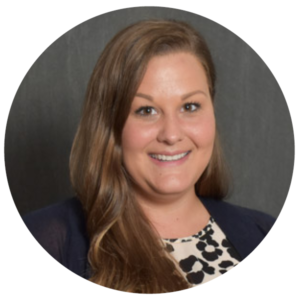“PD,” “Professional Development,” “PLC,” no matter what you call it, the moment you mention any form of the concept to educators, you will most certainly be met with narrowed eyes, a wry smile, a disdainful ‘ugh’, or some combination of these. As an educator with 10+ years of varied experience in public and charter schools across the country, I have attended and led my fair share of professional development.
To the educational leader who is sick of trying to imagine new ways to invest staff in well-intentioned sessions, or sick of staff complaining about full-day sessions with exorbitantly priced consultants, the grunts and groans, eye rolls, and the ever-present subversive text chains between co-working friends, I have a solution.
Autonomy.
Autonomy is a word we often throw around about student choice and the need to develop self-regulating individuals. So, where along the way did we forget that choice is a vital component of buy-in for all?
When I joined Classical Charter Schools in 2017, I was blown away by the amount of autonomy built into professional development. Like a fine-dining restaurant where I didn’t have to pay the tab, I chose PD sessions from a menu that was placed in my lap with the instructions, “choose three sessions you believe will have the most impact on your practice”. You mean, I get to choose my instructional development? From then on, I looked forward to monthly PD and was more reflective on the areas in which I wished to grow.
At Classical, PD is a core component of the monthly calendar. On the first Friday of every month, all staff join for three hours of sessions that are chosen by teachers. Two weeks prior, all teachers are sent a calendar by their direct managers and are asked to make three, 40-minute selections from a range of 6-7 topics each hour. The sessions are curated for the needs of the community and led by instructional coaches, deans, and school directors. This tailored curation allows those presenting to offer a range of topics that are both proactive and responsive to the needs of the community. Topics range from classroom management and data collection to personal growth and mindfulness. This community effort to develop staff as whole people is what sets professional development at Classical apart.
By now you might be thinking, “Yeah, I’m sure that works for them – they’re a charter school. They get to do all sorts of things that are out of the box!” To that I respectfully respond with – you can do it too. All it takes is a set of talented instructional and professional managers who are willing to create sessions that target the specific needs of your school. Every school leader (yes, even you) has teachers and staff who are adept at managing classrooms, engaging in difficult conversations, and administering running records – you just have to be willing to ask them to share their expertise. For those who say, “Ok, fine, but my district mandates the PDs we offer. They signed a contract with [insert name of exorbitantly priced consultant firm here], so we have to offer that”. To this I say – do that too! The only way for district leaders to understand that teachers will rally around choice in their professional development is to offer choice; and if you can prove that it will end up being cheaper in the long-run, there’s no way their ears won’t perk up at least a little bit.
It’s time to show our teachers that we value them as professionals who know their own areas of improvement. Get more out of your professional development, improve staff culture & expertise, and leave your team more energized and motivated for the days to come. I dare you to transform your community this way. Your staff will love you for it – I promise.
 This post was contributed by Ms. Anna Arndt, Instructional Coach & Dean of Students at South Bronx Classical IV. As a non-CMO charter network, we rely on the thoughts, opinions, and innovations of our staff to move our mission forward and provide an excellent academic option to families in the South Bronx. To hear more from our staff, check out the next post! Or, click here to learn more.
This post was contributed by Ms. Anna Arndt, Instructional Coach & Dean of Students at South Bronx Classical IV. As a non-CMO charter network, we rely on the thoughts, opinions, and innovations of our staff to move our mission forward and provide an excellent academic option to families in the South Bronx. To hear more from our staff, check out the next post! Or, click here to learn more.


